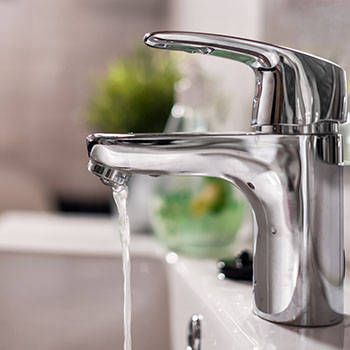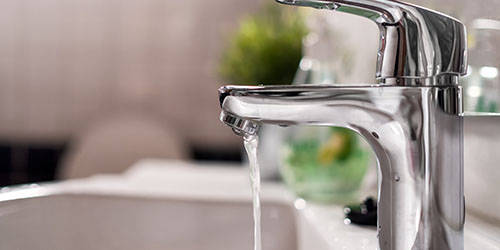- Home
- Existing residents
- Resident updates
- Practicing water safety and preventing Legionella
16 June 2025
Practicing water safety and preventing Legionella
What is Legionella?
Legionella is a naturally occurring bacteria that can cause a number of diseases, including Legionnaires’ Disease. Although uncommon, it can be quite serious and therefore is important to minimise risk.
 Legionella can occur in hot and cold-water systems. People can become ill by inhaling small droplets of water (aerosols) suspended in the air containing the bacteria. However, it does not cause harm if you drink water contaminated with the bacteria.
Legionella can occur in hot and cold-water systems. People can become ill by inhaling small droplets of water (aerosols) suspended in the air containing the bacteria. However, it does not cause harm if you drink water contaminated with the bacteria.
How do I keep my dwelling water system safe?
If you’ve been away from your dwelling for a period longer than a week or have infrequently used taps with low water usage, you can minimise risk of harm with the following steps:
- Turn on taps slowly to avoid splashing and run your taps and shower for five minutes before using
- Consider placing a plastic bag over the shower outlet with the corner cut off (this limits any spray and therefore limits aerosols forming)
- Once every 1-3 months clean your showerhead using either chlorine tablets or in a mild solution of bleach
- If you have an immersion heater, ensure it is switched on for at least 1 hour a day, to kill off any bacteria
- If you have an independent boiler in your home, make sure that the thermostat is set at 60°C, to kill any bacteria
If your water temperature feels too hot, please speak to your local manager who will initiate an investigation which will explore the option of fitting a thermostatic mixer valve (TMV). These devices blend the hot and cold water to provide a comfortable temperature, but do not impact the temperature of the hot water supply pre TMV.
Anchor are unable to turn down the hot water supply temperature from water cylinders, below 60c, due to legal requirements. However, we have options available to manage any possible scald risk.
Remember: If the temperature of your water changes, either the hot cools down or the cold temperature goes up, inform your location manager as Anchor need to follow this up promptly.
Legionnaires' disease symptoms
Legionnaires' disease can initially resemble the flu, including fever, chills, muscle aches and headaches. More serious symptoms can include coughing and shortness of breath and can be accompanied by diarrhoea or confusion.
Your doctor may order tests like urine or blood tests to help diagnose Legionnaires' disease. If you suspect exposure to Legionella bacteria, seek medical attention promptly and mention the potential exposure.
For further questions, reach out to your location manager.
This website uses cookies which track activity so that you get the best possible experience. By continuing to use this website we will assume you are happy and cookies will be set. You can change your cookie settings at any time.













